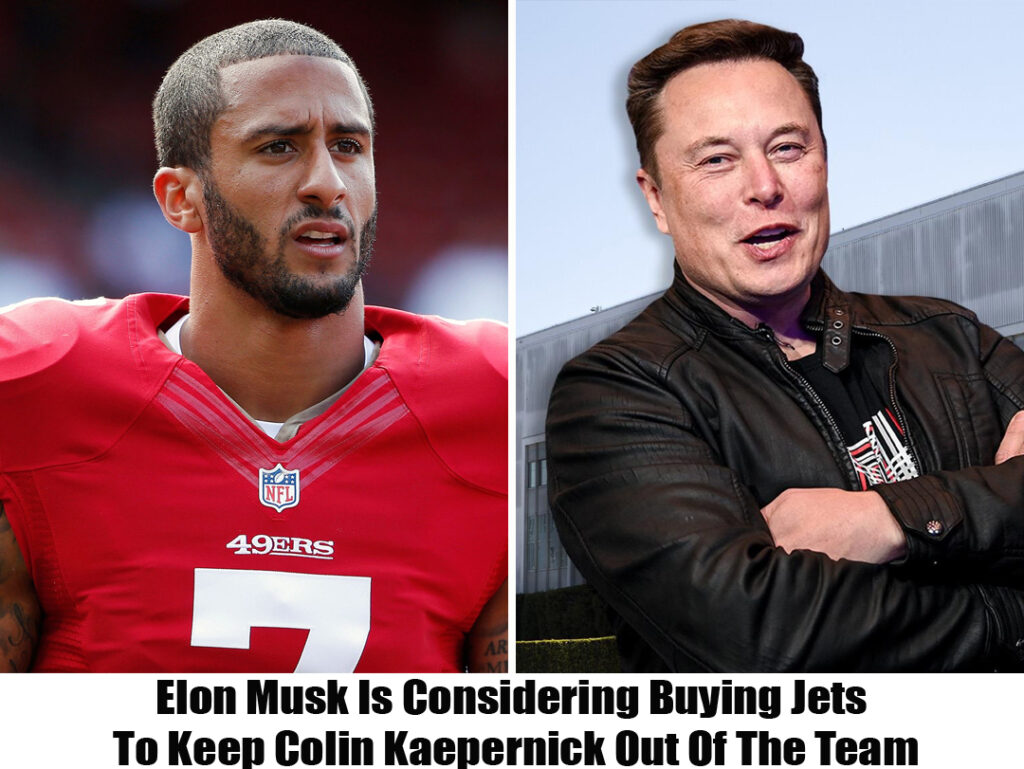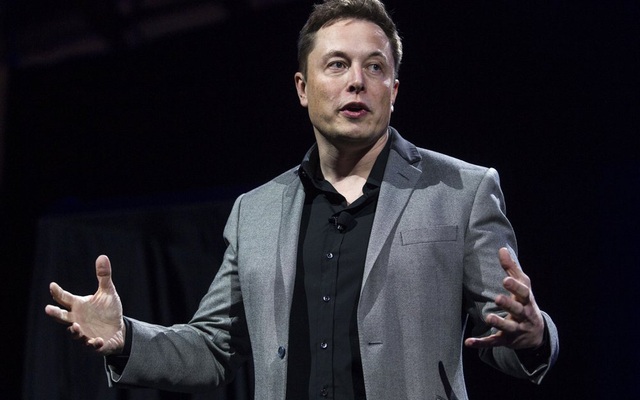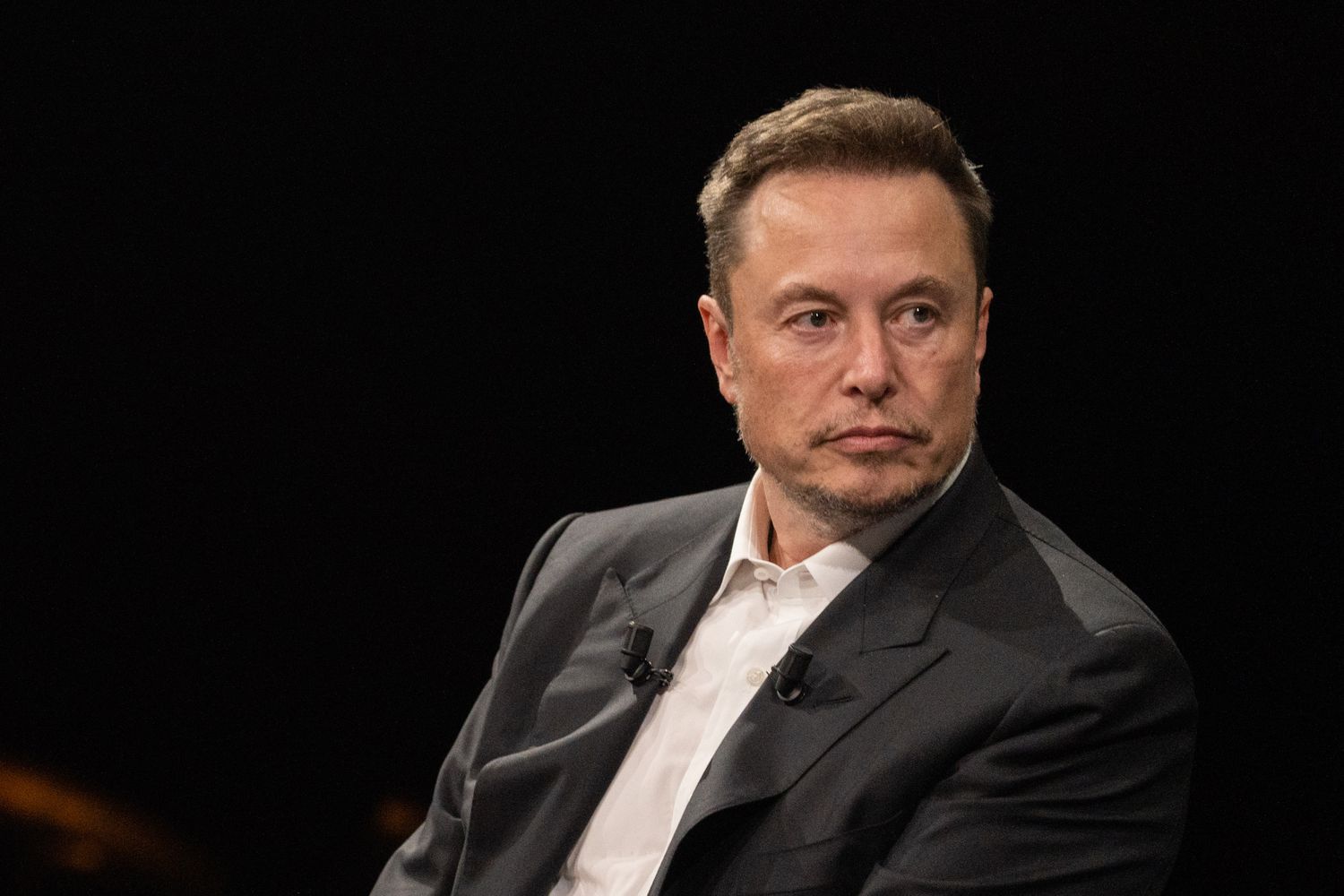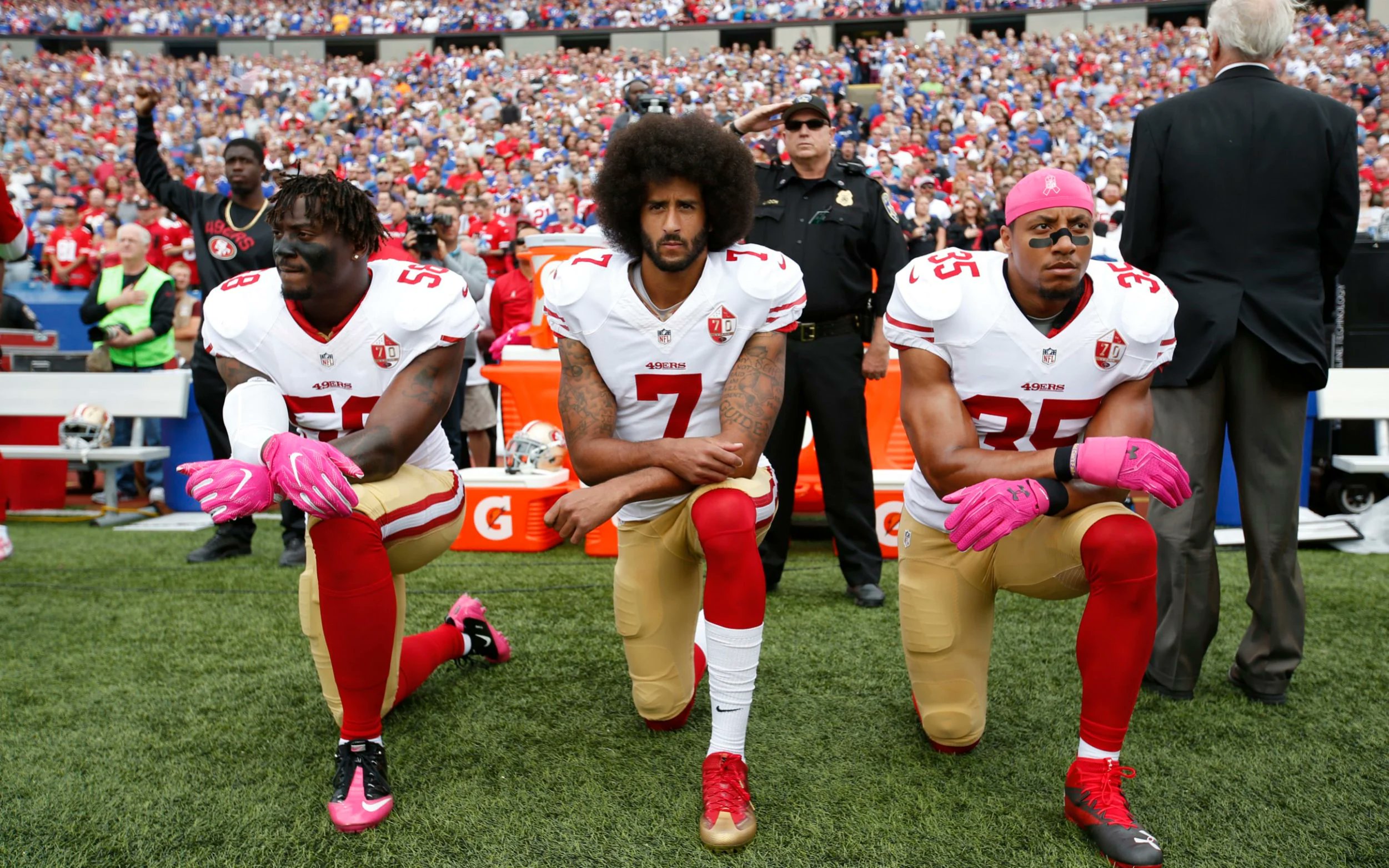
Elon Musk Is Considering Buying Jets To Keep Colin Kaepernick Out Of The Team

In the ever-evolving landscape of professional sports, unexpected and audacious decisions often take center stage. The latest headline-grabbing twist involves none other than Elon Musk, the enigmatic CEO of Twitter, contemplating the acquisition of the New York Jets, seemingly with the sole purpose of preventing Colin Kaepernick from joining the team. It’s a move that combines the worlds of technology, social media, and American football into an intriguing narrative that has captivated fans and pundits alike.
To fully understand the gravity of this potential acquisition, we must first delve into the Colin Kaepernick saga. The former San Francisco 49ers quarterback, known as much for his activism as his athletic prowess, became a lightning rod for controversy when he chose to kneel during the national anthem in 2016. Kaepernick’s silent protest was a poignant response to racial injustice and police brutality in the United States.
Since that pivotal moment, Kaepernick’s career trajectory has taken a dramatic turn. He became a symbol of resistance and a catalyst for change, sparking conversations and debates that transcended the football field. Yet, he found himself at the center of a firestorm, facing both support and backlash.
Elon Musk, on the other hand, is known for his unconventional thinking and a penchant for taking on colossal challenges. From revolutionizing the electric car industry with Tesla to envisioning a future on Mars with SpaceX, Musk’s endeavors have consistently pushed the boundaries of what’s possible.
Musk’s role as the CEO of Twitter adds another layer to his influence. Social media platforms are increasingly shaping public discourse, and Twitter, with its rapid dissemination of information, holds a unique position in this landscape.

It was during a Twitter Spaces conversation that Musk made the surprise announcement. Responding to a question from a user about his thoughts on Kaepernick potentially joining the New York Jets, Musk replied, “I’m seriously considering buying the Jets to ensure that doesn’t happen.”
The comment sent shockwaves through the Twitterverse and the sports world alike. Musk’s statement was met with a mix of enthusiasm, skepticism, and curiosity. Could the CEO of a social media giant and the visionary behind SpaceX really be contemplating an NFL team acquisition for such a specific purpose?
The potential acquisition of an NFL team by a tech mogul is a collision of two very different worlds. The NFL is known for its tradition, physicality, and intense competition, while the tech industry is characterized by innovation, disruption, and rapid change. The clash of cultures between these domains is palpable.
Moreover, Musk’s statement underscores the significant role of social media in shaping public opinion and influencing decisions. In an age where tweets can move markets and impact elections, the idea of a tech CEO using his platform to express intentions regarding a sports team adds a new dimension to the concept of corporate influence.
Musk’s association with Twitter adds complexity to the situation. As the CEO of a platform that has played a pivotal role in disseminating information and shaping public discourse, his words carry weight. The potential influence that Musk could wield over discussions about Kaepernick and the NFL is a matter of concern for some, who see it as a potentially dangerous intersection of business and personal agenda.
Unsurprisingly, Colin Kaepernick did not remain silent in the face of Musk’s announcement. Taking to Twitter, Kaepernick responded, “My dedication to fighting racial injustice and police brutality remains unwavering. No individual, no matter how influential, can stifle the pursuit of justice.”
Kaepernick’s response garnered support from many who see his protest as an essential catalyst for discussions about racial inequality. It also highlighted the ongoing tension between athletes using their platforms for social causes and powerful figures attempting to shape those narratives.
Fans of the New York Jets and football enthusiasts, in general, have been left bewildered by the sudden turn of events. The prospect of a tech billionaire entering the realm of professional sports ownership for such a specific purpose has ignited debates about the role of personal agendas in the sports world.
While some Jets fans see Musk’s potential involvement as a way to shape the team’s future, others are wary of the motives behind the move. The NFL has long been a bastion of American sports culture, and any shift in ownership can be met with both excitement and apprehension.
In a rather unexpected twist, Elon Musk, known for his candid and often controversial remarks, couldn’t resist making a quip related to Colin Kaepernick’s iconic afro hairstyle during a recent interview. When asked about his motivation for considering the Jets acquisition, Musk humorously remarked, “Well, I’ve heard Colin’s got a lucrative future in the hair product business. Maybe he should focus on that for a while.” The comment, though light-hearted in nature, added a touch of levity to the otherwise serious discussions surrounding the potential team acquisition.
The potential acquisition raises legal and ethical questions. Can an individual purchase an NFL team with the explicit intention of preventing a specific player from joining? Does such an action align with the principles of fair competition and athlete rights?
Legal experts and sports commentators have weighed in on the matter, and opinions vary. Some argue that team ownership comes with certain rights, including decisions about player personnel. Others contend that using ownership to stifle an individual’s career could lead to legal challenges and damage the integrity of the league.
Elon Musk’s ability to influence discussions through social media is undeniable. His tweets have moved markets, influenced public policy, and sparked debates on a global scale. In the case of the potential Jets acquisition, his comments have once again demonstrated the power of social media platforms to shape narratives and impact real-world decisions.
The intersection of technology, social media, and sports is becoming increasingly pronounced. It raises questions about the responsibility of tech CEOs in wielding their influence and the potential consequences of such actions.
Elon Musk’s contemplation of acquiring the New York Jets to block Colin Kaepernick from joining the team has ignited a whirlwind of discussions and debates. It’s a collision of two distinct worlds, with technology and social media playing a central role in shaping the narrative.
As the story unfolds, it prompts us to examine the evolving dynamics of power, influence, and corporate agendas in the world of sports. Regardless of the outcome, one thing is certain: the intersection of technology, sports, and social justice will continue to be a compelling and contentious arena for years to come.






